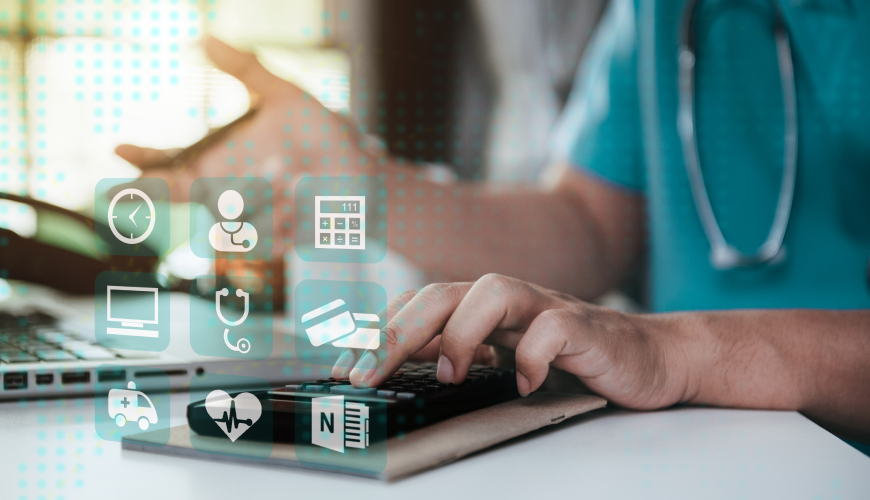
The medical industry is continuously embracing technology to revolutionize healthcare. As medical software and healthcare data become more valuable, it’s more important than ever to tighten up the protection of critical data. Using EHR, EMR, and other cloud-based healthcare systems for data storage and infrastructure needs poses a risk of potential leaks.
Ransomware attacks have affected hundreds of healthcare organizations in Canada, the United States, and many other countries since the pandemic began. Hackers target hospitals and healthcare systems because of the immediate, substantial impact on people’s daily lives.
Last year’s widely publicized cyberattack on Newfoundland and Labrador’s healthcare system — the worst in Canadian history— should have been a wake-up call for healthcare institutions and companies worldwide to increase security measures. Hackers purged 200,000 files from Eastern Health’s network drive that may contain patient and employee information dating as far back as the 90s.
As the old saying goes, the best defense is a good offense. To mitigate cyberattacks or prevent them entirely, you must have preventive actions and a well-defended system now.
When it comes to your cloud infrastructure and other digital assets, their maintenance and support should be taken seriously and trusted to the experts. Consider Convergine for security management services in Toronto and across Canada to help keep your healthcare data sealed as tightly as possible.
How to secure your digital infrastructure against security breaches
So, what are the best fundamental security practices in healthcare regarding digital infrastructure? Here are some key security options to consider:
1. Control access to sensitive data
A recent Cybersecurity Insiders report found that 98% of healthcare organizations are vulnerable to insider threat incidents, the highest number in any industry.
Access controls allow you to control who has access to your patient information, including medical history, test results and records provided by other clinicians.
Authenticating a user’s identity is the first step in ensuring that user identities are accurate. It also determines whether a user has the authorization to view a particular item or take a specific action. By combining authentication and authorization, healthcare data can be kept safe.
You can best achieve data security by restricting access only to those who need it to perform their jobs, for example, physicians and support staff. Establish who should have access to what information and set access controls accordingly.
2. Educate healthcare staff on potential threats
Policy changes or modifications can only go so far without proper training.
Security requires everyone’s awareness and involvement, or else cybercriminals can sneak their way in at any moment. However, according to a 2019 Kaspersky report, 32% of healthcare workers have never received cybersecurity training from their workplace.
All employees should be aware of viruses, malware, ransomware, and phishing. They should also receive training on safe internet habits, password education, physical security, and PIPEDA/HIPAA compliance.
3. Encrypt all data in transit and at rest
The use of encryption in healthcare organizations is one of the most effective methods of protecting patient data.
Encrypting data while transferring from a secure network to another location, like a referring physician’s office or a patient portal, makes it more difficult for attackers to decrypt patient information, even if they gain access to it.
Data encryption at rest is equally important. It’s an added layer of security for data that sits in storage, preventing unauthorized persons and applications from retrieving sensitive health information.
4. Keep a secure backup at an off-site location
If a security breach happens, having a solid recovery plan and a reliable backup copy of your data will minimize the impact without compromising the value of your care delivery services. To prevent attacks compromising data availability, ensure backups are geographically separated and cordoned off from production systems and networks.
Convergine is a reliable partner for digital healthcare security management services
Healthcare data security is challenging, but it pays off in the long run. The cost of managed services is a fraction of security issues and their consequences, like downtime and recovery costs.
 A healthcare IT infrastructure that performs efficiently and with a great user experience involves hands-on experience, deep industry knowledge, and proficiency in advanced technologies to develop. At Convergine, we’ve got you covered. We help organizations like yours achieve success and embrace digital transformation through our security management services:
A healthcare IT infrastructure that performs efficiently and with a great user experience involves hands-on experience, deep industry knowledge, and proficiency in advanced technologies to develop. At Convergine, we’ve got you covered. We help organizations like yours achieve success and embrace digital transformation through our security management services:
- Website security maintenance: Maintaining your healthcare website requires regular content updates, fighting threats, debugging code, and more. We monitor your site closely and make adjustments as necessary.
- Application security maintenance: You can rely on us to monitor your healthcare app continuously, analyze your performance data, and resolve issues in real-time. It also includes EMR/EHR security maintenance and CRM security maintenance. Our services ensure your applications remains stable, functional, and secure.
- Infrastructure maintenance services: Depending on size and complexity, your business may require a server and virtual machine maintenance. With our expertise, you can be confident that your infrastructure is secure and stable.
Connect with us today to digitally transform your healthcare organization, making it more secure for your patients and staff while continuously growing your business.











